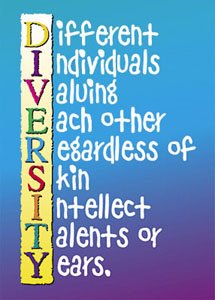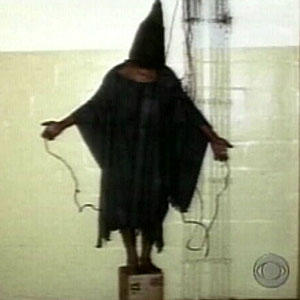
A new book by Walter Benn Michaels, The Trouble with Diversity, challenges the focus of our most popular podcast to date: the ethics of diversity. In his book,
Michaels argues that the preoccupation with diversity in this country in the past 20 to 30 years has actually damaged the prospects for equality. The "left", in his view, has concentrated so much on eradicating racism and sexism that it has ignored class. The result is that there has been no social and political force to counteract the growing economic inequality in America. He believes that a focus on cultural differences is either a frivolous distraction from more important matters or a dangerous attempt to cloud over the deep problems that prevent the United States from becoming an egalitarian society.
Michaels makes some startling claims in his work. One point, that he explains in this
interview, is that by concentrating on diversity, American universities are complicit with right-wing attempts to ignore class and privilege. By trying to work to get students to be less racist and sexist, and creating different opportunities to attract students of color and women to higher education, universities and colleges are doing nothing more than training more and more people to be the managers for a capitalist system that keeps the economic status quo.
He also claims that our identities are the least important aspects about ourselves. He suggests that our racial or gender identities should matter just about as much as our hair or eye color--that is, not at all. By focusing so much attention on anti-racism and anti-sexism, we perpetuate stories about who we as individuals are that is deeply disconnected from the biggest social problems of the day.
Scott McLemee critically reviews Michaels's book and points out that the so-called "left" that is being taken to task is probably a miniscule number of people working in the academy and this commitment to diversity is not a broad social commitment. As a result, we should still work to eliminate racism and sexism and not see this kind of effort as an obstacle to equality.
Michaels view is not particularly new and seems to have friends on both the left and the right. American philosopher Richard Rorty made a similar point in his book,
Achieving Our Country, in 1998. Rorty maintains that the left has divided into two branches--a Cultural Left interested in race and gender difference and a Reformist Left interested in economic class. These two branches don't talk to each other, according to Rorty, and the result is that America is a nicer place to live in than it was 40 years ago (people of color are less likely to run into bigots on a regular basis), but it is a harsher place to make a living and the poor will continue to suffer as the rich run around and consolidate their privilege.
Oddly enough, this criticism of a Cultural Left is also something that is a hallmark of the kind of conservative criticism found in the work of
Allan Bloom,
Dinesh D'Souza, and
David Horowitz (who is making a one man crusade, through the
Academic Bill of Rights movement, to prevent the so-called Cultural Left from having too much power to set the course of higher education).
Must we see the commitment to anti-racism and anti-sexism as opposed to economic justice? Does it make a difference to Michaels's argument that, historically speaking, many of the groups most committed to economic justice in U.S. history, such as labor unions, were racist and sexist? Can we rest now on all the anti-racist and anti-sexist work that has been done in the past 40 years and "move on"?
Labels: american democracy, diversity






